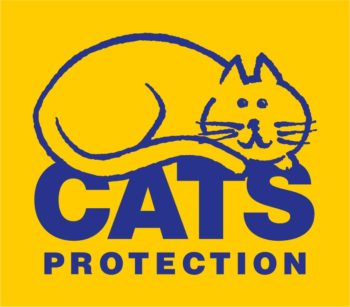24 Jan 2023
Jane Clements MSc (Human Behaviour Change), RVN head of neutering, explains the planned improvements to the charity’s neutering scheme following vet feedback.

Image: © zanna_ / Adobe Stock
Cats Protection’s CATS Report1 found that 3 in 10 of all cat owners reported serious concerns about being able to afford their living costs over the next 12 months. Cats Protection data (January to November 2022) showed that relinquishments of cats to adoption centres due to financial reasons increased by 52% compared to 2021, indicating the cost of living crisis and general cat care costs are having an effect.
An increase was also recorded last year in cats abandoned by owners.
Financial assistance to neuter, alongside timely neutering, is a vital intervention to help prevent accidental litters – and more cats and kittens being abandoned or ending up in shelter care. This is so important right now as more people than ever are struggling with their finances.
With the support of private veterinary practices across the UK, Cats Protection runs the largest cat neutering programme in the world. We couldn’t reach, and help, so many cats and kittens without this support and collaboration, which we hugely appreciate. Therefore, we are committed to doing all we can to support vet practices to participate in our subsidised neutering programme.
Last year, we conducted a consultation with vets through a survey and a series of focus groups to better understand how we can help, and what we need to do to future proof our neutering programme.
 A resounding positivity came from research participants about the benefits of subsidised neutering. Vets told us the scheme enabled a golden opportunity to talk to cat owners who may not otherwise present their cat to the vet about preventive health care for the future, and wider cat welfare topics.
A resounding positivity came from research participants about the benefits of subsidised neutering. Vets told us the scheme enabled a golden opportunity to talk to cat owners who may not otherwise present their cat to the vet about preventive health care for the future, and wider cat welfare topics.
It was clear that vets are very motivated for their practices to take part in neutering programmes for cat owners who can’t afford the whole cost of the procedure, for the benefits of cat welfare and the tangible reduction they see in the unowned cat population in their areas. So much passion and will exists to support animal welfare charities.
Cats Protection neutering programmes offer a range of different neutering voucher types and values, with different ways to access subsidised neutering depending on geography. It has been our aim to simplify this system. Vets told us:
We have listened carefully to vets’ feedback and we are embarking on a new subsidised neutering programme, which will encompass:
Our aim is to support both cat owners who are struggling financially and veterinary practices, to make it easier to be involved in this important welfare intervention.
For some vet practices, this model will feel familiar as we already have some existing regional neutering programmes operating like this, in part. We have taken this model and improved on it following the findings from the consultation.
We hope this simple, accessible service will make it easier and more attractive for vet practices to participate, and provide cat owners with the opportunity and capability to get their cats neutered.
We aim to launch the new programme in spring this year, and we will be offering free CPD-accredited webinars to find out more about it in the coming weeks and months.
In the meantime, if you would like more information or an informal conversation, contact [email protected]
Previous research has indicated that access to subsidised neutering enables owners to neuter their cats sooner2. This shift in behaviour towards earlier neutering is hugely important to prevent unwanted litters.
Cats can become pregnant as early as four months old3. By neutering cats from four months of age, the veterinary profession can have a significant impact on the number of unplanned litters born. Guidance, research, anaesthetic protocols and a video around the benefits of neutering at four months can be found at www.cat-kind.org.uk and https://youtu.be/eFHTRCqlMpo
Neutering may be the only preventive veterinary procedure some owners will do for their pets, but we shouldn’t underestimate the huge welfare benefits to the individual cat and the wider population this one act achieves.
Please join us by participating in our new subsidised neutering programme and help us reduce the number of unplanned litters, abandoned cats and kittens ending up on the streets, and cats coming into shelter care.